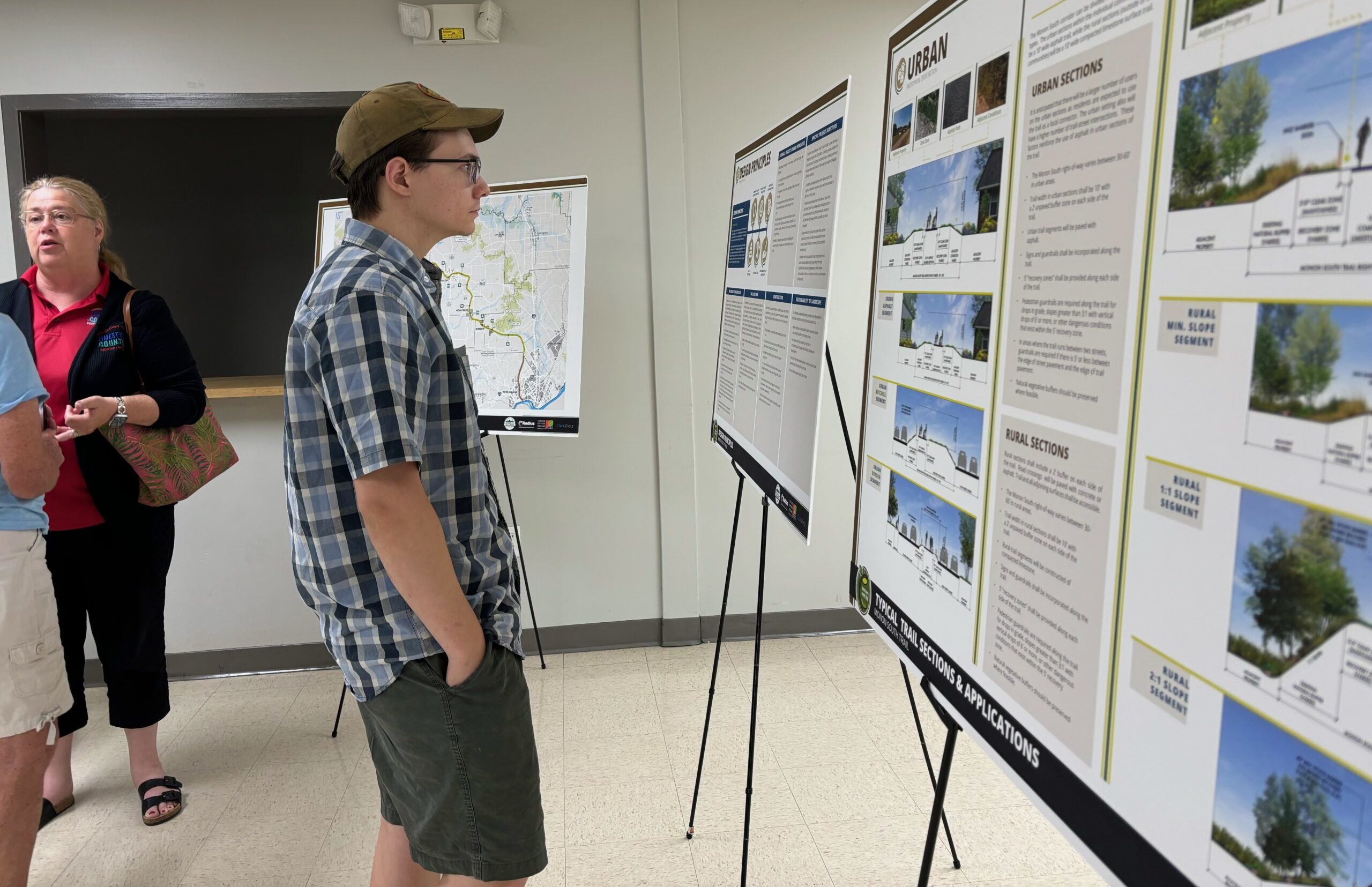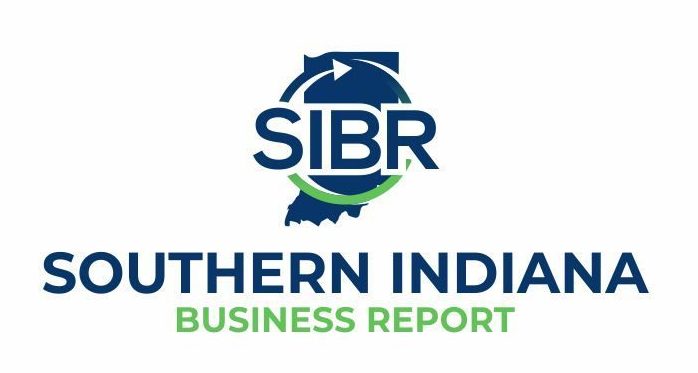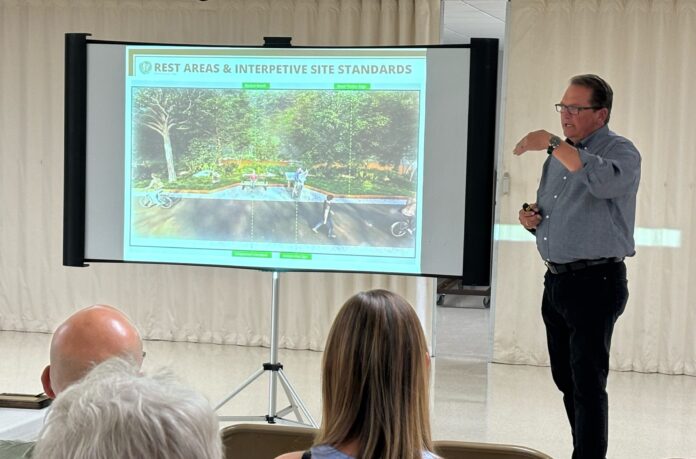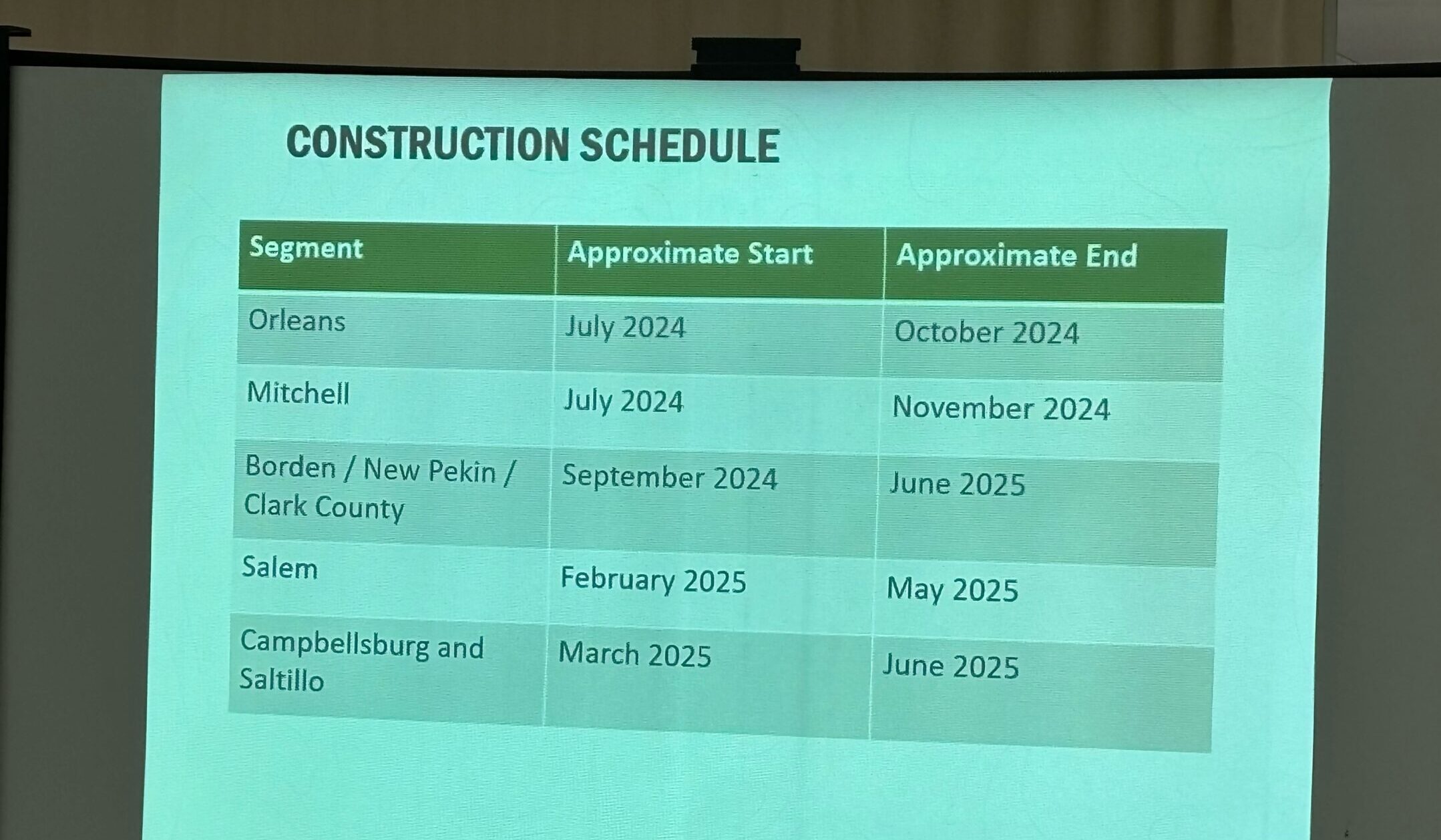Carol Johnson, Southern Indiana Business Report
MITCHELL – An updated construction schedule, details on design elements and future financing strategies for the Monon South Trail were presented at a community meeting Wednesday in Mitchell.
About 25 people attended the meeting at the Mitchell Community Building.
Ryan Hughes with engineering firm Clark Dietz, Ron Taylor from Taylor Siefker Williams landscape architect firm and Jeff Quyle, CEO and president of Radius Indiana, the trail administrator, provided updates.
Construction has begun on Phase 1A, which will complete 20 miles of trail. The Orleans segment, about 1.25 miles, of the Monon South Trail will be the first completed trail section this year, with a target completion date by December. Completion of the Mitchell segment is also expected by the end of the year. Work on the segment linking Borden and New Pekin – the longest section in Phase 1A – will begin in September and last several months. Starting in early 2025, work will begin on the Salem, Campbellsburg and Saltillo sections with target dates for substantial completion of those areas set for July.
MAC Construction of New Albany was awarded the Phase 1A paving contract. Phase 1B will include construction of trailheads, restroom facilities and parking.
Hughes said the sections of the trail between the paved segments will be completed in future phases.
Tim Harris of Mitchell was among those attending the meeting. An avid hiker and cyclist, he moved to Mitchell from Greenfield about a year and a half ago. He said he’s looking forward to being able to ride his bike on the trail, away from traffic.

“I live out on (Ind.) 60 and tried to bicycle to the ice cream shop riding along the side and cars didn’t expect us and I almost got hit a few times and it was terrifying,” he said. “There’s nowhere I can bicycle to right now without putting it on my car. This will help solve some of that.”
Harris said connecting the communities is another part of the trail he’s excited about. He mentioned the Orleans Farmer’s Market, Cave River Valley near Campbellsburg and outdoor areas near Salem that will be close to the trail.
He was also glad to hear that an invasive plant inventory is being done along the trail and that attention is being given to ensure any new plantings are native species.
Building out the trail
The entire trail will span nearly 60 miles through Lawrence, Orange, Washington and Clark counties, with an additional portion completed through the city of New Albany. The final, full trail will traverse 62.3 miles, making it the longest continuous trail in the state. A groundbreaking event earlier this month in Borden marked the start of construction.
The state’s Next Level Trails program awarded $22.3 million to Radius Indiana, the region’s economic development partnership, to facilitate the trail construction of a railbanked CSX railway corridor, in addition to the $5.5 million the state provided for the purchase of the corridor. Radius received $1 million from the READI program and has spent $1 million in Radius funds on the trail.
“By this time next year, we will have spent all the money we have,” he said.
Quyle said Radius will pursue grants and other funding sources to continue trail construction.
Costs have increased considerably since the early phases of trail planning. In 2021, the estimated cost of building the Monon South Trail was between $40 million and $45 million. Quyle said the estimated cost has grown to about $70 million.
The trail surface in between the paved sections will be a crushed limestone aggregate suitable for walking and biking.
A developed trail will not only be a source of recreation for community residents, but will also attract visitors to the towns on the trail.
“We see the trail as an economic development tool. Trails bring lots of visitors into communities and if we provide the right amenities, those trail users will be happy to spend time and money when they visit,” Quyle said.
To assist communities with welcoming trail users, Radius will offer a Trail Town certification program and in 2025, Radius will hold a pitch competition for trail-friendly business ideas.




